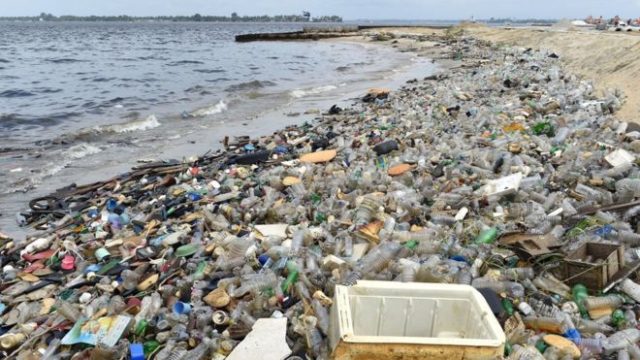From the plastic waste, to the melting ice caps, experts warn our seas are suffering. At the sixth annual World Ocean Summit, held in Abu Dhabi, UAE, political leaders, policymakers, heads of business and scientists from around the globe are meeting, hoping to build a consensus and greater collaboration.
But the message is clear – “radical change” is needed. “We’ve got a problem that is a planetary problem and we as human beings have to accept that all of us are part of the problem,” says Peter Thomson, the United Nations special envoy for the oceans.
“And, you know, I won’t go into the details of that, but that’s pretty obvious what is required, which is for societal change and radical change, in fact. “Because the news that we have had from our scientists, and I refer particularly to the IPCC, is that we are trending in a very hazardous course.”
A recent report by the Intergovernmental Panel on Climate Change (IPCC) warned that time is running out if the world wants to achieve the most ambitious target in the Paris Climate Accord – keeping global warming at 1.5 degrees Celsius (2.7 degrees Fahrenheit).
According to the IPCC, the planet has already warmed by about one degree Celsius since pre-industrial times and is on course for another 2-3 degrees of warming by the end of the century unless drastic action is taken. There is broad scientific consensus that the effects of climate change have devastated the world’s coral reefs.
The carbon dioxide that humans pump into the atmosphere spikes the temperature and acidity of seawater, which both poisons the marine invertebrates and hampers their growth at alarming rates, according to studies published last year in the journal Science.
“We’re on a course now which will be with us for hundreds of years,” says Thomson. “Even if we did everything right tomorrow on GHG (greenhouse gas) emission reductions, we’re still on that course.
“But we have still got time over the next ten years to lower our GHG emissions to a level whereby we will not hit that two degree (Celsius) warming stage, which, as you would know, once we get to two degrees (Celsius), we’re currently trending towards three degrees (Celsius), once we get to two degrees, we lose all coral reefs, for example, in the world.”
The World Ocean Summit is seeing some evidence of collaboration. The Washington, D.C. based Waitt Institute and Foundation announced a new Blue Prosperity Coalition Wednesday (6 March), including partnerships with the Azores, Barbuda, Curaçao and the Kingdom of Tonga.
The aim is to balance economic growth with marine protection, and achieve the ambitious goal of protecting 30 percent of the world’s oceans by 2030, an aim expressed by the IUCN in 2016.
“We rely on the oceans for so many things, livelihoods, the food we eat, the air we breathe, the oceans sequester a ton of carbon, and if we don’t fix the oceans now, it’s going to be too late,” says Ted Waitt, the founder and chair of the Waitt Institute and Foundation.”It’s going to be an environmental and economic disaster.
“So, we have to do this now, we have to come together, we know the tools, we know what works, we can do it, it’s just about implementation. Find a few courageous governments that are willing to take the risk to do it and it will pay huge dividends down the road.” Thomson hopes the world will unite around scientific consensus.”We’ve got to trust science, who else you gonna trust? Hollywood?” he says.
“Obviously, we go to our best scientists and what their consensus is after proper peer review of all their findings. And that is the conclusion which we have to trust as we go forward.” The World Ocean Summit runs 5-7 March in Abu Dhabi, UAE.It’s the first time in the event’s six annual editions that it is being held in the Middle East








